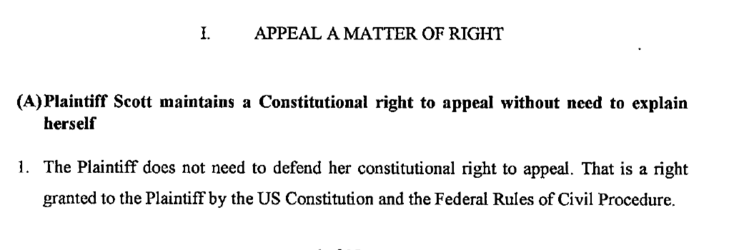
And said rights are open to conditions. To be specific, Rule 2, Rule 3, Rule 4, Rule 5, Rule 6, Rule 7 (that Hardin cited), etc. all of which conditionalize your right to appeal. Rule 24 can be used to deny a litigant IFP rights, if the court determines it is frivolous. Many different jurisdictions have upheld this rule and used it even as early as this year. See, for example, Reynolds v. Boyle, 679 F. App'x 372 (5th Cir.2017), Dominique A. Morrow v. Stoner, et al, (N.D. Ohio 2014), Rogers v. Cochran et al, (N.D. Tex. 2021). This rule has been used even in courts in the 4th circuit. See, for example, Carl H. Alley, Petitioner, v. Dodge Hotel, Respondent, 501 F.2d 880 (D.C. Cir. 1974)

Despite what Melinda thinks, it is not absurd that she has to follow the rules of Appellate Procedure. She is as bound to them as is anyone else.

This is only an alternative to his initial demand, that is to say, an appellate bond, which is perfectly within 6he rules (see rule 24 and rule 7).
In any case, courts can always issue an Order to show cause for a party to explain why their motion should be granted. Given that the court must establish whatever or not Melinda is doing this in bad faith, such order is only natural. There is no question that a judge may use the powers granted to him, including when assessing your rights to appeal, or whatever or not your motion is in bad faith. This is something very basic and simple to understand, and exists in both civil and criminal courts. There are many citations to this, some that have come from the fourth circuit up to SCOTUS. See, Brown v. Allen, 344 U.S. 443, Sanders v. United States, 373 U.S. 1, United States v. Bekins, 304 U.S. 27, etc.

Null seeks to make sure you follow the rules, rules which allow your appeal to have bonds, have IFP status retracted, or otherwise punish what a court sees as a frivolous appeal, if court so choses. Even Jews are subject to rules, Melinda, however much you would dislike them.

1. Subjectively believing your action to be filed in Good Faith, does not necessarily mean it was filled in Good Faith, and can still be found to be frivolous. See, for example, Griffith v. Smith, 30 Va. Cir. 250 (1993),
2. Similarly, you supposed lack of statement admitting to bad faith behavior does not mean there is none. Whatever there is or not, is for the court to decide. See above citations, and rules of appellate procedure.

Incorrect. As the court itself pointed out this lawsuit was clearly meritless, and full of "repetitive meritless filings". Considering, as the court pointed out, that it's clear to see that you have no cause of action, considering your history of meritless actions, considering your own admissions on here about your lawsuit's frivolousness, considering you don't even have a clear jurisdiction on Null, it is not absurd to think that this is to hurt Null, as you stated many times to be your goal.

It is very well accepted that meritless filings, no matter how small, are a burden on everyone. See Roller v. Gunn, et al, 107 F.3d 227 (4th Cir. 1997), In Re Sindram, 498 U.S. 177
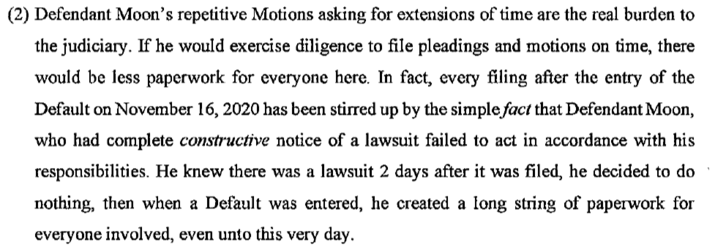
The thing is the court found no notice. See below:
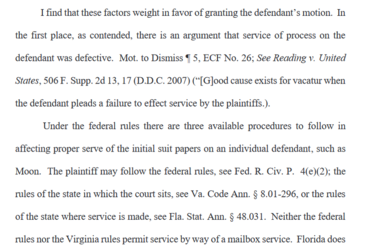
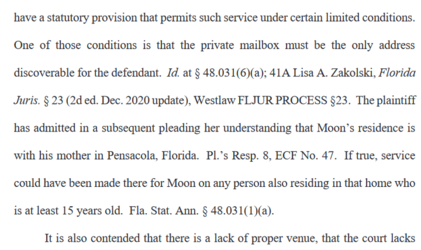
As towards the extensions of time argument, such motions are not an abuse of court if requested for a good reason. All three times Hardin asked for it, court found his arguments for it to be valid.

Plaintiff is invited to read the motion in question, wherein she can find multiple reasons for his request, including, but not limited to this important one:
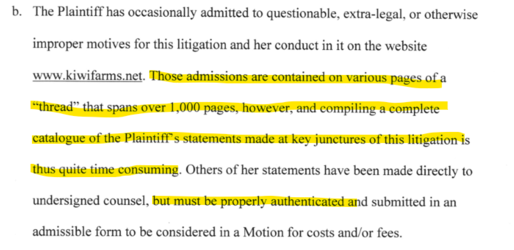
Plaintiff is advised that is is often a good idea to read the motions one is responding when filing a response.

Following the rules in not absurd.
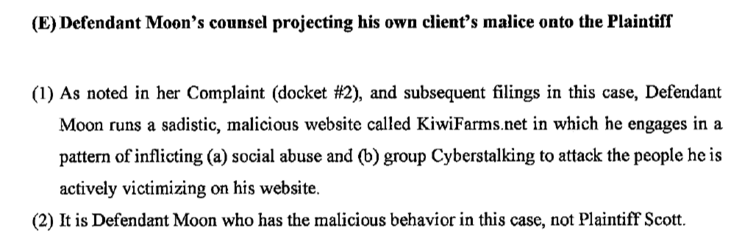
There is different between a malicious motion, and an allegedly malicious website. Only one of them would be relevant here, and it is not the one you picked.

The accusations are quite founded, and Hardin's claim of your frivolousness was found to be valid by the court.

So you say, and yet it was found that his claims did have merit.

Despite her outrage about Hardin's lack of citations, this is the first out of three citations in this document. Pot meet kettle.
That being said, reading it this way has its limitations, and is not a immunity shield against any frivolousness of your own doing. Labram v. Havel, 43 F.3d 918 (4th Cir. 1995), Conley v. Gibson, 355 U.S. 41, 78 S. Ct. 99 (1957), Ashcroft v. Iqbal, 556 u.s. 662 (2009 )
What follows is long rant that can be best summarized as "if he did everything I wanted him to, I wouldn't have sued him, therefore I am the victim"
Section "V." J-M are rehashes of the arguments she has already made and ones I had already addressed above.

Let the old me address this:

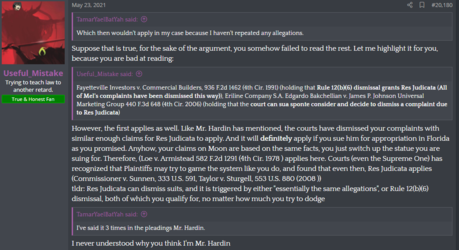
It should be accurate enough.

But you have not. Even the court agrees it is just baseless "speculati[on]" and "do[es] not meet the test of Virginia law"
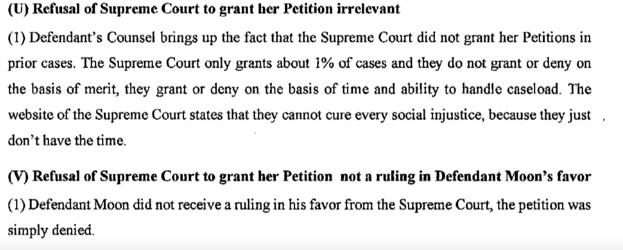
All your failures are relevant, since it shows no court has found any of it to be of any value.
A denied appeal is in favour of Null. How is that so hard to grasp?


Also, Brown & Pipkins, LLC v. Service Employees Int'l Union, 15-1931 (4th Cir. 2017), CX Reinsurance Company Limited v. Devon Johnson, 19-1516 (4th Cir. 2020)
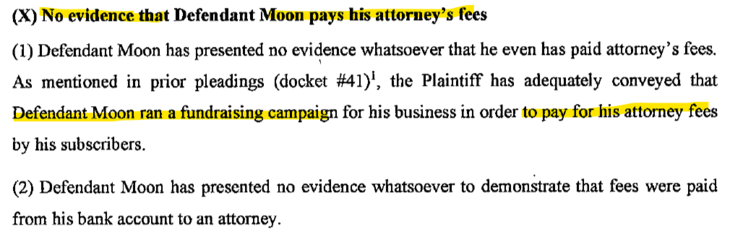
Ignoring the first bit, Null can pay his attorney however he wants. Be it from his bank account, from GofundMe, or whatever, as long as it is paid. Naturally, any evidence of his payments will reveal itself with the motion, as proof to the amount requested. At this stage, this is simply irrelevant
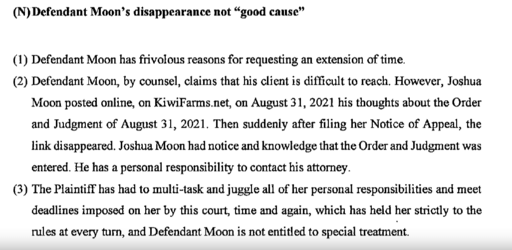
For someone complaining about lack of citations, she sure hates providing them. Vacations happen, deal with it. That being said, learn to read better. Difficulty to reach him was not only due to his vacation.
Moon, indeed, is not entitled to special treatment. Your inability to understand rules, and procedures, does not grant him "special treatment". You yourself have asked the court for an extension of time.
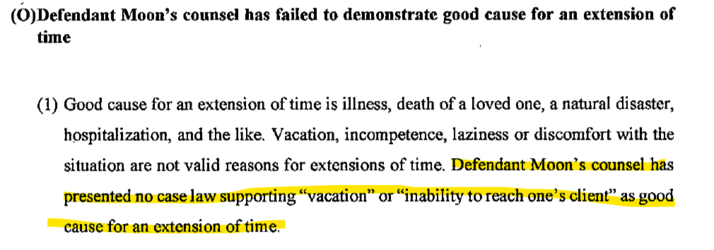
Neither have you that anything you said is true.

Only when you were late to file. Hardin filed early. Please read your citations more carefully:


Again, this applies if you were late, not early. From your own citation:
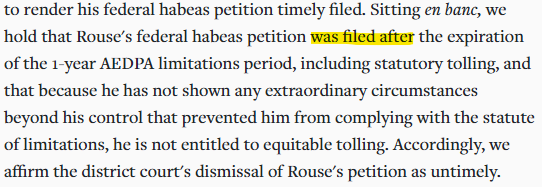
What follows is Mel displaying that she fell for Ralf's tricks when he said he can "totally make the judge do what he wants". That's why she lost. Because some rando said something she can't prove, but because it aligns up with her worldview it must be correct. It is delusional and should be tossed Neitze v. Williams, 490 U.S. 319, 325 (1989)

You did not. You accused him of every buzzword in the book to hope something stuck. Frivolous motions such as this naturally get denied

Like the judge said, you did not need his permission to do discovery.

Crimes and criminals are often tolerable. Look at Floyd, Al Capone, etc, all who enjoy great admiration from the public. That being said, what some people consider "intolerable" is not "so outrageous in character, and so extreme in degree, as to go beyond all possible bounds of decency, and to be regarded as atrocious, and utterly intolerable in a civilized community."" What falls into this category is things like torture of your children in front of you. In fact, it must be so "extreme" and "severe" that "that no reasonable person could be expected to endure it." Russo v. White, 400 SE2d 160 (Va. 1991). Kiwifarms, or indeed, CPS calls do not fall under that measure.
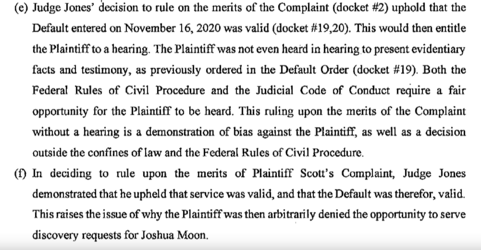
Melinda is confused as to why, when shown her service was fraudulent under law, the judge changed his mind.

Even if that is the case, such restrictions have been valid since at least 1962. See Link v. Wabash R. Co., 370 U.S. 626 (1962). Even harsher restrictions have been found valid like pre-filing injunctions since at least, in VA, 1977. See Ronald Graham v. W. M. Riddle, Ronald Graham v. Jack Davis, Director, Virginia State Penitentiary, Ronald Graham v. Rebecca Ponder, Administrator, Central State Hospital, Ronald Graham v. Jack Davis and A. G. Robinson, Ronald Graham v. Jack Davis, W. M. Riddle, and Sergeant D. T. Scites, Ronald Graham v. Jack Davis, Director, 554 F.2d 133 (4th Cir. 1977)

Again, this is not a magical shield, and as Supreme Court showed in Ashcroft v. Iqbal, it should not be seen as that. Complaints get tossed for faults whatever or not you think you have a magical shield protecting you.

Citation needed

But you were speculating. The was not a single fact, nor proof provided.

1. The complaint is structured in a way that makes it seem it only applies to CPS
2. Moon is not the government, or any arm of it thereof, and therefore cannot be held liable for alleged constitutional violations Manhattan Community Access Corp. v. Halleck, 17-1702, 587 U.S. (2019)

Rule 24, Neitzke v. Williams, 490 U.S. 319, Jonathan Henslee v. Alvin Keller, 11-6707 (4th Cir. 2012), also from your appeal sheet:

Now we move to her memorandum which is for some reason shorter than this

1. Your citation is for a criminal case, this is a civil one
2. Even if it didn't only apply to us gov (it specifically mentions only them), this is fundamentally different from your case. In here you seek to appeal
while having IFP while Null seeks to place a bail on you. In the case cited, no bail is present, only a denial of IFP.
3. You are trying to apply criminal law to a civil case. It doesn't apply. This is not your trial, Null is not the Government, the context behind the ruling is different, and you are in a completely different type of court. I hope I expressed well enough how much this does not fit



"Often made" and "must be made" is not the same thing
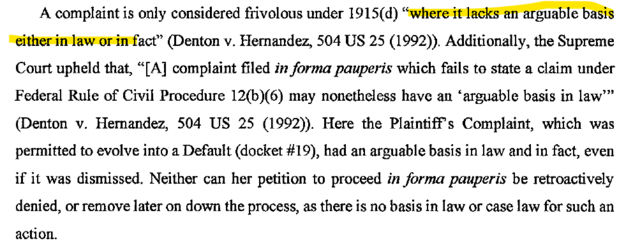
1. Congrats. Your case does lack it.
2. "May"
3. Because your case has gotten this far does not mean it has merit. Indeed, many frivolous complaints, sadly, make it pretty far before being found frivolous. Circular Logic is not a valid legal argument
4. There is basis in the literal rules of appellate procedure, but I guess they don't matter

The court has cited many of your frivolous actions, and indeed has warned you not to pursue them further. That being said, regardless of motive, your complaint can still be frivolous (see citations above)
She then continues to wave her magic shield, and continues to misread very simple words of the Supreme Court.
Melinda, your lack of ability to read is your own damned fault
Ammendum in regards to her "I have a constitutional right to appeal". That's a common misconception. There is no constitutional right to an appeal. However states that have made appeallate courts "an integral part of the . . . system for finally adjudicating the guilt or innocence of a defendant," are bound by the 14th amendment's "Due process" clause. See Evitts v. Lucey, 469 U.S. 387. That clause, of course, is for Criminal Courts.


















































